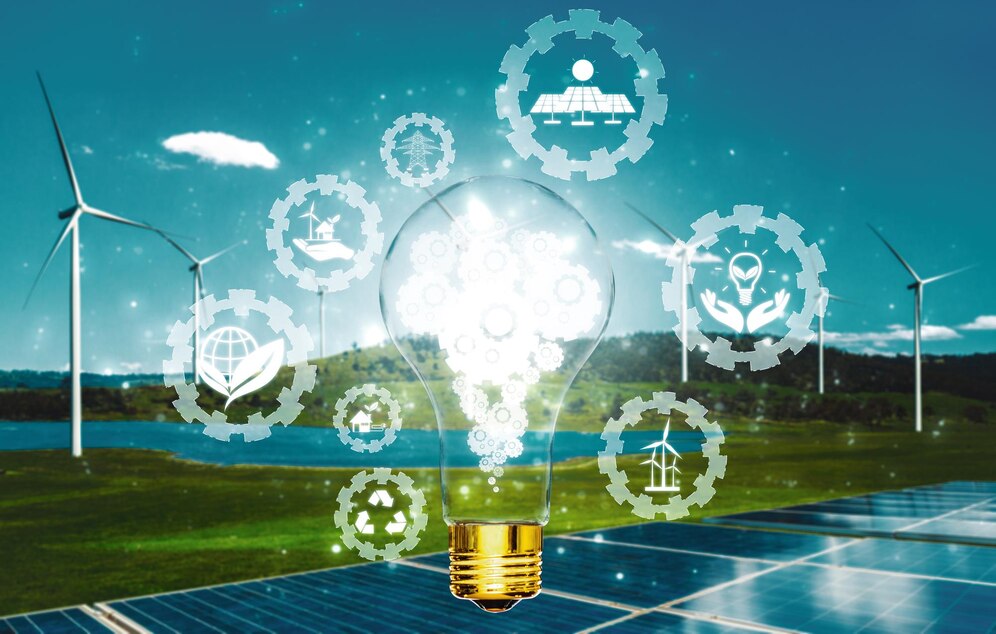In an era where sustainability and environmental responsibility are becoming paramount, renewable energy systems have emerged as a crucial component in addressing global energy challenges. At Hythane-Labs, we are committed to advancing renewable energy solutions that not only meet today’s energy needs but also pave the way for a sustainable future. In this blog, we delve into the significance of renewable energy systems, their benefits, and how they contribute to a greener planet.
Understanding Renewable Energy Systems
Renewable energy systems harness energy from natural sources that are continuously replenished. Unlike fossil fuels, which are finite and emit harmful pollutants, renewable energy sources include solar, wind, hydro, geothermal, and biomass. These systems convert natural energy into usable power, providing a cleaner, more sustainable alternative to traditional energy sources.
The Role of Renewable Energy Systems
Automation and robotics are significantly transforming manufacturing processes. Advanced robotics are now capable of performing complex tasks with precision and efficiency. Automation not only speeds up production but also improves safety by taking over hazardous tasks. Collaborative robots, or cobots, work alongside human operators, enhancing productivity and allowing for more flexible manufacturing environments.
1. Reducing Carbon Footprint
Renewable energy systems play a pivotal role in reducing greenhouse gas emissions. By replacing fossil fuels with clean energy sources, these systems help mitigate climate change and decrease air pollution. For instance, solar panels and wind turbines generate electricity without emitting carbon dioxide or other harmful gases.
2. Enhancing Energy Security
Diversifying energy sources with renewables enhances energy security by reducing dependence on imported fossil fuels. This shift contributes to a more stable and resilient energy grid, safeguarding against price volatility and supply disruptions.
3. Promoting Sustainable Development
Renewable energy systems support sustainable development by providing clean energy solutions that can be scaled to meet growing demands. They also foster economic growth by creating jobs in manufacturing, installation, and maintenance sectors.
4. Innovative Technological Advancements
The renewable energy sector is marked by rapid technological advancements. Innovations such as improved solar photovoltaic (PV) cells, more efficient wind turbines, and advanced energy storage solutions are driving the transition to a more sustainable energy landscape. Hythane-Labs stays at the forefront of these advancements, integrating cutting-edge technology into our renewable energy solutions.
Types of Renewable Energy Systems
1. Solar Energy
Solar energy systems convert sunlight into electricity using photovoltaic cells or concentrated solar power (CSP) technologies. Solar panels can be installed on residential rooftops, commercial buildings, and solar farms, providing a versatile and scalable solution for clean energy generation.
2. Enhancing Energy Security
Wind turbines capture the kinetic energy of wind and convert it into electricity. Wind farms, both onshore and offshore, are increasingly being deployed to harness wind power, which is abundant and widely distributed across the globe.
3. Hydropower
Hydropower systems utilize the energy of flowing water to generate electricity. Large-scale hydroelectric dams and small-scale run-of-river systems contribute to renewable energy generation while managing water resources.
4. Geothermal Energy
Geothermal energy systems extract heat from the Earth’s interior to produce electricity or provide direct heating. This reliable and consistent energy source is especially effective in regions with significant geothermal activity.
5. Biomass Energy
Biomass energy systems convert organic materials, such as plant and animal waste, into usable energy. Biomass can be used for electricity generation, heating, and as a feedstock for biofuels.
Benefits of Renewable Energy Systems
1. Environmental Benefits
Renewable energy systems reduce environmental impact by minimizing air and water pollution, conserving natural resources, and protecting ecosystems. They contribute to a healthier planet and a higher quality of life.
2. Economic Advantages
Investing in renewable energy systems stimulates economic growth by creating job opportunities, reducing energy costs, and driving innovation. It also supports energy independence and stability, benefiting both local and national economies.
3. Energy Efficiency and Reliability
Modern renewable energy systems are designed for high efficiency and reliability. Technological advancements enhance performance, optimize energy output, and ensure consistent energy supply.
4. Scalability and Flexibility
Renewable energy systems offer scalability and flexibility, allowing them to be adapted for various applications, from small residential setups to large-scale industrial projects. This adaptability makes them suitable for diverse energy needs.
The Future of Renewable Energy Systems
The future of renewable energy systems is bright, with ongoing research and development paving the way for new breakthroughs and expanded applications. At Hythane-Labs, we are dedicated to advancing renewable energy technologies and implementing innovative solutions that drive progress toward a sustainable future.
As we continue to explore and develop new renewable energy systems, we invite you to join us in embracing this transformative journey. Together, we can create a cleaner, more efficient, and sustainable energy landscape that benefits generations to come.
8. Conclusion
Renewable energy systems are integral to addressing the challenges of climate change and energy security. By harnessing the power of natural resources, these systems offer a sustainable solution to global energy demands. At Hythane-Labs, we are committed to advancing renewable energy technologies and providing innovative solutions that drive a greener and more sustainable future. Explore our renewable energy solutions and join us in making a positive impact on the world.








